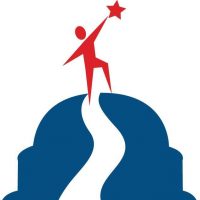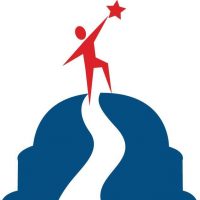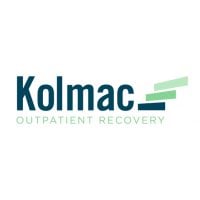Project Chesapeake
Drug Rehab Center in Arlington, Virginia
- Substance Abuse
Project Chesapeake is a substance abuse treatment center in Arlington, VA that offers outpatient, aftercare, and intensive outpatient services utilizing various therapy methods to provide personalized treatment and support to individuals struggling with addiction and co-occurring issues, while also providing additional services such as youth mentoring and community outreach and education.
About This Virginia Facility
Project Chesapeake is a substance abuse treatment facility located in Arlington, Virginia. Their mission is to provide support and treatment to individuals struggling with addiction and substance abuse. They offer a range of services to help individuals on their journey to sobriety, including outpatient, aftercare support, and intensive outpatient levels of care. With a dedicated team of professionals, Project Chesapeake strives to provide effective and comprehensive treatment for those seeking help in overcoming their addiction.
At Project Chesapeake, individuals can find a variety of services and treatment methods to address their addiction and substance abuse. Their outpatient program provide individuals with the flexibility of attending therapy sessions and participating in treatment while still maintaining their daily responsibilities. Aftercare support offers ongoing support and assistance to individuals after they have completed their initial treatment. This continued support helps individuals stay on track with their recovery and prevent relapse. For those needing a more intensive level of care, Project Chesapeake offers intensive outpatient programs that provide structured treatment and counseling sessions to individuals on a more frequent basis. With a focus on individualized care and evidence-based treatment methods, Project Chesapeake is committed to helping individuals overcome their addiction and achieve lasting recovery.
Genders
Ages
Modality
Additional
Conditions and Issues Treated
A drug abuser needs help because if no one helps them, they will not leave their vicious circle.
People who abuse drugs are likely to suffer from an addiction, which can cause serious health problems. It can also cause quarrels with people around them. It is common for drug abusers to have difficulty holding down jobs or relationships, but sometimes people around them can be quite tolerant. There are cases where the families of the drug abusers do not want to see them get any help, and the subject becomes controversial.
When it comes to helping drug abusers get sober, there are many options to choose from. It is essential to state that there is no “correct” way of doing things. People are different, and they need different types of help to get over their addiction.
Levels of Care Offered at Project Chesapeake
This center offers a variety of custom treatment tailored to individual recovery. Currently available are Aftercare Support, Intensive Outpatient, Outpatient, with additional therapies available as listed below.
The Intensive Outpatient Program at Project Chesapeake is for those who need intensive care but would rather get it in the comfort of their own home. The treatment programs vary in duration and intensity and can be tailored to suit the individual’s needs. IOP helps the patient to live at home and gradually get back to their routine life.
Daily trips to the hospital that provides the treatment include intensive outpatient services (IOP). The patients gradually get back to their everyday lives. IOP benefits the most when the patients have a supportive family member or friend who can encourage them in their recovery.
Individuals struggling with drug addictions can get help from several treatment options, including inpatient and outpatient programs. Outpatient drug treatment programs can also provide patients with different levels of care, usually depending on the patient’s degree of addiction.
At an outpatient program in Arlington, a patient will attend a recovery program during the day and return home in the evening. Suppose a patient is struggling with drug addiction. In that case, an outpatient program can serve as an effective transition point during the recovery process.
Aftercare is a part of drug rehabilitation. It is also known as “post-treatment support.” Aftercare programs are available for addicts after they complete drug rehab. It is often the final step in the recovery process. The goal of aftercare is to ensure that addicts maintain their achievements in rehab and do not relapse. Professionals generally provide aftercare (including addiction therapists, physicians, social workers, psychologists) and involve individual and group therapy sessions.
Therapies & Programs
Trauma therapy helps people dealing with addiction by allowing them to confront the traumas of their past and move past them. It is important to note that trauma therapy should not be confused with PTSD (post-traumatic stress disorder) Rather, it is used to treat the effects of trauma, which are often at the root of addiction.
Dialectical Behavior Therapy was developed in the 1980s to treat chronically suicidal individuals. It is a cognitive-behavioral therapy that combines strategies derived from Zen Buddhism, such as mindfulness training. DBT has been adapted for use with other types of psychiatric problems, including substance abuse and personality disorders. DBT aims to help patients change their thinking and behavior, instead of relying on medication.
Cognitive Behavioral Therapy (CBT) is a common therapeutic approach to help drug addicts. It teaches addicts new ways of thinking and behaving so that they can avoid relapse. There are several forms of CBT used in drug rehabilitation centers.
Cognitive Restructuring helps addicts identify faulty, negative thinking so that they can work together with the therapist to find healthier ways of thinking, resulting in better decision-making.
Cognitive Behavioral Therapy for Addiction uses the principles of CBT to help treat addiction. It focuses on specific aspects of each person’s thinking, feeling, physiology, and behavior. It aims to identify specific problems in these areas and create a personalized treatment strategy.
Additional Details
Specifics, location, and helpful extra information.
Arlington, Virginia 21225 Phone Number(410) 636-5600 Meta DetailsUpdated November 25, 2023
Staff Verified
Patient Reviews
There are no reviews yet. Be the first one to write one.
Arlington, Virginia Addiction Information
The state of Virginia has been struggling with substance use and abuse like the rest of the United States. A little over 10% of the entire Virginia population uses drugs and almost 5% abuse alcohol every given year. This has led to almost 6.5% of all deaths in Virginia being somehow related to alcohol and/or drugs.
Arlington, Virginia is not immune to the problems of drug addiction and abuse. 13% of Arlington residents reported drinking alcohol weekly or almost 3 times a week, and 29% of respondents are people under the age of 21. The most commonly used drugs are marijuana, cocaine, heroin, and prescription drugs. Some of the most common treatments in Arlington include inpatient treatment and 12-step programs.
Treatment in Nearby Cities
- Abingdon, VA (339.9 mi.)
- King George, VA (72.5 mi.)
- Amherst, VA (173.7 mi.)
- Fredericksburg, VA (78.0 mi.)
- Franklin, VA (176.4 mi.)
Centers near Project Chesapeake



The facility name, logo and brand are the property and registered trademarks of Project Chesapeake, and are being used for identification and informational purposes only. Use of these names, logos and brands shall not imply endorsement. RehabNow.org is not affiliated with or sponsored by Project Chesapeake.




